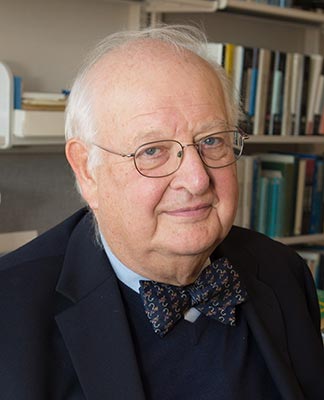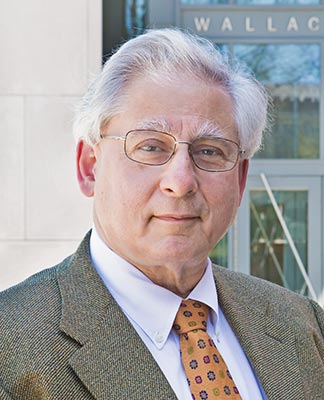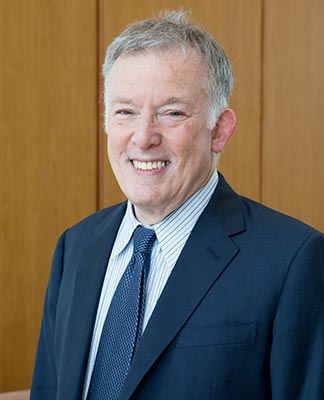Eighteen Princeton University faculty members were transferred to emeritus status in recent action by the Board of Trustees, three of which hold joint appointments with Princeton's Woodrow Wilson School of Public and International Affairs. Transfers are effective July 1, 2016, except where noted. They are as follows.
- Sir Angus Deaton, the Dwight D. Eisenhower Professor of International Affairs and professor of economics and international affairs
- Paul DiMaggio, the A. Barton Hepburn Professor of Sociology and Public Affairs, effective Feb. 1, 2016
- Robert D. Willig, professor of economics and public affairs
 Sir Angus Deaton received the 2015 Nobel Memorial Prize in Economic Sciences for his body of research in consumption, poverty and welfare. Among the best known of his works are three books: "Economics and Consumer Behavior" with John Muellbauer, "Understanding Consumption," and "The Analysis of Household Surveys." Deaton is also widely known for research with Princeton's Anne Case on mortality of middle-aged white Americans, and for research with Princeton's Daniel Kahneman on the link between income and happiness. Some of Deaton's other key research topics are demand analysis, econometrics, saving behavior, measuring poverty in India, commodity pricing, and the relationship between health status and economic status.
Sir Angus Deaton received the 2015 Nobel Memorial Prize in Economic Sciences for his body of research in consumption, poverty and welfare. Among the best known of his works are three books: "Economics and Consumer Behavior" with John Muellbauer, "Understanding Consumption," and "The Analysis of Household Surveys." Deaton is also widely known for research with Princeton's Anne Case on mortality of middle-aged white Americans, and for research with Princeton's Daniel Kahneman on the link between income and happiness. Some of Deaton's other key research topics are demand analysis, econometrics, saving behavior, measuring poverty in India, commodity pricing, and the relationship between health status and economic status.
Deaton is a fellow of the Econometric Society, a corresponding fellow of the British Academy, a fellow of the American Academy of Arts and Sciences, an honorary fellow of the Royal Society of Edinburgh and an honorary fellow of Fitzwilliam College, Cambridge. He is a member of the American Philosophical Society and of the National Academy of Sciences. He also was named a Knight Bachelor by Queen Elizabeth II of England.
Deaton earned his B.A. and Ph.D. from the University of Cambridge. He taught at the University of Bristol before joining the Princeton faculty in 1983.
 Paul DiMaggio's research contributions span several areas in sociology. He has studied the production and consumption of art, including research on the classification of art and how cultural capital determines life success. DiMaggio's work on organizational analysis with Walter Powell on mechanisms leading organizations to herd-like behavior has been influential and widely cited. DiMaggio has also studied polarization in American public opinion, the role of network externalities in social stratification, and the relationship between culture and cognition.
Paul DiMaggio's research contributions span several areas in sociology. He has studied the production and consumption of art, including research on the classification of art and how cultural capital determines life success. DiMaggio's work on organizational analysis with Walter Powell on mechanisms leading organizations to herd-like behavior has been influential and widely cited. DiMaggio has also studied polarization in American public opinion, the role of network externalities in social stratification, and the relationship between culture and cognition.
In addition to being an intellectual leader in the field, DiMaggio has mentored numerous graduate students who now teach at leading departments across the country, and he has served on many University and national committees. He is a member of the American Academy of Political and Social Science, the American Academy of Arts and Sciences and the American Philosophical Society.
DiMaggio earned his bachelor's degree at Swarthmore College and his Ph.D. at Harvard. He taught at Yale before coming to Princeton in 1992. DiMaggio is now a professor of sociology at New York University.
 Robert Willig studies industrial organization, regulation and antitrust. His paper "Consumer's Surplus Without Apology" rejuvenated quantitative applications of welfare economics to policy analysis. One of his lasting contributions to research on industry structure is his co-authored 1982 book "Contestable Markets and the Theory of Industry Structure," which analyzes the determinants of prices and structure in economic markets without entry barriers. Willig's body of published research has contributed to understanding of theory and policy of predatory practices, nonlinear pricing, network access pricing, impacts of mergers, privatization, intellectual property disputes, and various forms of legal and administrative regulation in a wide variety of industry settings.
Robert Willig studies industrial organization, regulation and antitrust. His paper "Consumer's Surplus Without Apology" rejuvenated quantitative applications of welfare economics to policy analysis. One of his lasting contributions to research on industry structure is his co-authored 1982 book "Contestable Markets and the Theory of Industry Structure," which analyzes the determinants of prices and structure in economic markets without entry barriers. Willig's body of published research has contributed to understanding of theory and policy of predatory practices, nonlinear pricing, network access pricing, impacts of mergers, privatization, intellectual property disputes, and various forms of legal and administrative regulation in a wide variety of industry settings.
Willig's interest in antitrust and regulation extended beyond academia. He was the deputy assistant attorney general for economic analysis in the Antitrust Division of the U.S. Department of Justice from 1989 to 1991, and he has advised state, federal and international agencies on welfare-enhancing economic regulation. Willig was a co-founder of the international economic consultancy Compass Lexecon.
After earning his bachelor's degree at Harvard, Willig received his Ph.D. from Stanford. He worked in the economics group at Bell Labs before joining Princeton in 1978. Willig served for many years as the faculty chair of the Master in Public Affairs program and of the economics field in the Woodrow Wilson School. While Willig is transferring to emeritus status, he will continue to teach at the Woodrow Wilson School as a lecturer with the rank of professor.


